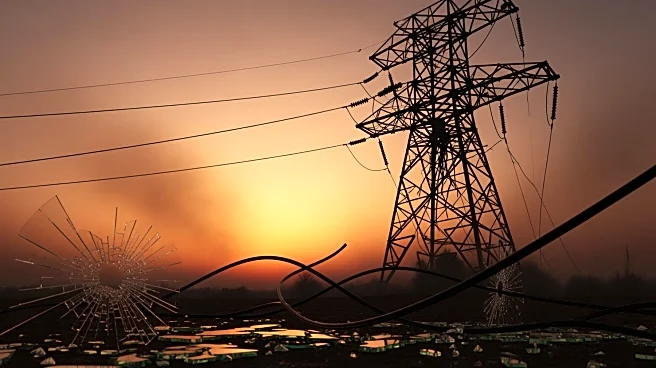Rapid Read • 8 min read
Iran's leadership, under Ayatollah Ali Khamenei, is increasingly turning to nationalism to rally domestic support amidst regional instability and economic difficulties. Historically, Iran's Islamic Republic has focused on religious legitimacy, but recent events have prompted a shift towards emphasizing Iran's pre-Islamic cultural heritage. This change in rhetoric follows a series of Israeli strikes and ongoing economic struggles within the country. Khamenei's recent speeches have highlighted Iran's ancient civilization, a notable departure from his previous dismissals of the pre-Islamic era. This strategic pivot aims to unite a population that has grown disillusioned with theocratic governance and is facing significant economic hardships.
AD
The shift towards nationalism in Iran reflects broader geopolitical and domestic pressures. By invoking national pride, Iran's leaders aim to consolidate support and distract from internal dissent and economic woes. This move could impact regional dynamics, as Iran seeks to strengthen its position against adversaries like Israel and the United States. The emphasis on nationalism may also influence Iran's internal politics, potentially leading to a recalibration of its ideological stance. This development is significant for U.S. foreign policy, as it may affect diplomatic relations and strategies in the Middle East, particularly concerning Iran's nuclear ambitions and regional influence.
Iran's nationalist rhetoric is likely to continue as the government seeks to maintain power and address internal challenges. The international community, particularly the U.S. and its allies, will closely monitor these developments, as they could affect negotiations and regional stability. Potential reactions from Iranian dissidents and the general populace will also be critical in shaping the country's future political landscape. The effectiveness of this nationalist strategy in garnering public support remains uncertain, especially given the lack of independent polling in Iran.
The use of nationalism by Iran's leadership raises questions about the long-term viability of the Islamic Republic's ideological framework. This shift may indicate a broader trend of adapting state ideology to meet contemporary challenges, reflecting a pragmatic approach to governance. The blending of nationalism with religious themes could lead to a redefined national identity, impacting cultural and social dynamics within Iran. Additionally, this strategy may serve as a model for other nations facing similar internal and external pressures.
AD
More Stories You Might Enjoy










